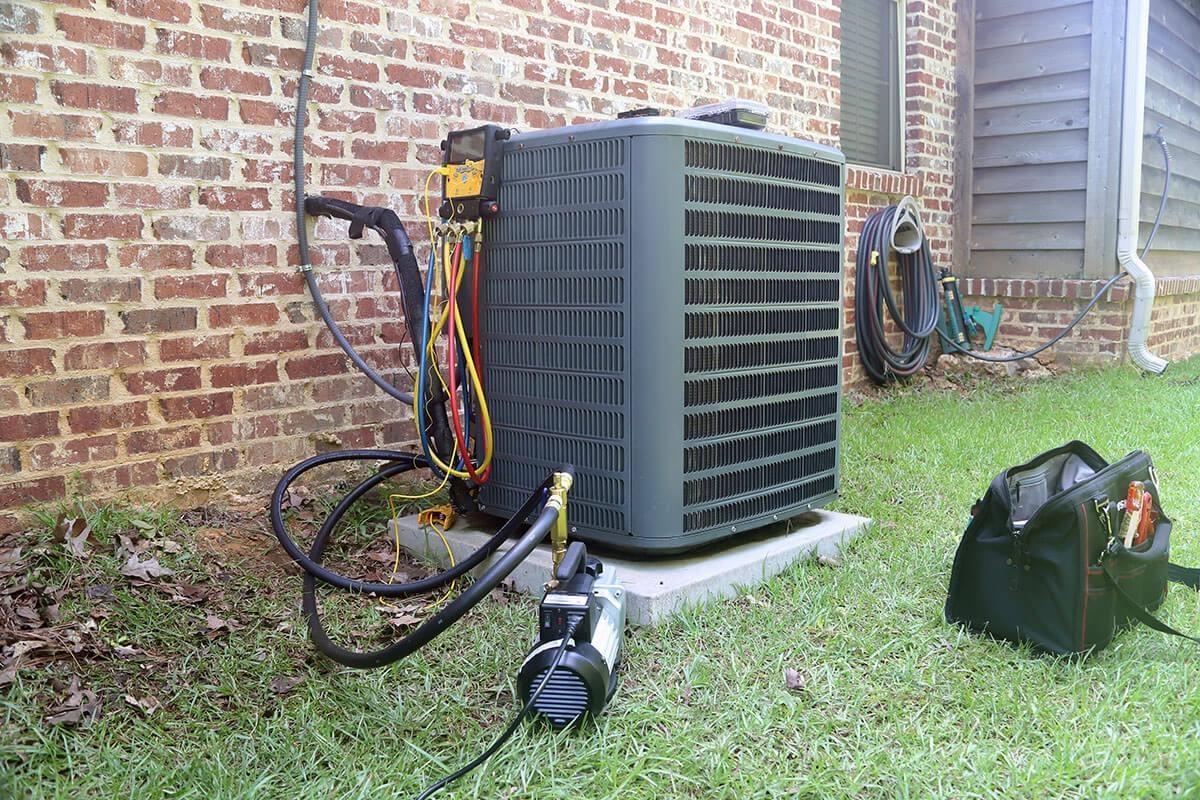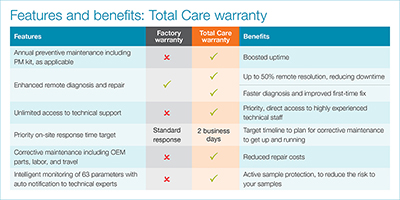Wondering about the difference between warranty and maintenance plan? Learn the benefits, drawbacks, and which one is right for you in this quick guide. A warranty is a promise to repair or replace a faulty product. A maintenance plan covers routine service and upkeep.
Warranties and maintenance plans are essential for protecting your investment. A warranty typically covers defects or malfunctions that occur within a specified period. It guarantees that the manufacturer or seller will repair or replace the product if it fails due to these issues.
On the other hand, a maintenance plan focuses on regular servicing to ensure the product remains in optimal condition. It usually includes scheduled check-ups, part replacements, and other preventive measures. Understanding the difference helps consumers make informed decisions, ensuring long-term value and reliability of their purchases.
Defining Warranty
Understanding warranty is crucial. It helps you know your rights. A warranty is a promise from a seller. It ensures the product works as described.
Basic Concept
The basic concept of a warranty is simple. It protects you from faulty products. If a product breaks, the warranty covers repairs. Sometimes, it even covers replacements.
Warranties come in different types. Each type offers unique coverage. Knowing these types helps you make informed choices.
Types Of Warranties
| Type of Warranty | Description |
|---|---|
| Manufacturer’s Warranty | This is provided by the product maker. It usually covers defects in materials and workmanship. |
| Extended Warranty | This extends the manufacturer’s warranty. It offers longer coverage for an additional cost. |
| Limited Warranty | This only covers specific parts or issues. The terms are limited compared to a full warranty. |
| Lifetime Warranty | This covers the product for its entire life. Terms and conditions usually apply. |

Credit: www.gilmanheatingandcooling.com
Defining Maintenance Plan
A maintenance plan is a service agreement. It ensures regular upkeep and checks of a product. This plan keeps products in top shape, avoiding breakdowns.
Basic Concept
The basic concept of a maintenance plan involves scheduled services. These services include inspections, cleanings, and minor repairs. The goal is to ensure the product works well. Regular maintenance prevents unexpected issues. It extends the life of the product.
Scope Of Maintenance Plans
The scope of maintenance plans can vary. Below is a table showing common services:
| Service | Description |
|---|---|
| Inspection | Checking the product for issues |
| Cleaning | Removing dirt and debris |
| Minor Repairs | Fixing small problems |
| Adjustments | Tweaking parts for optimal performance |
Maintenance plans can be customized. They may include more services like:
- Software updates
- Battery replacements
- Lubrication of moving parts
These plans often cover labor costs. Some may even include parts at a discounted rate. The exact details depend on the agreement.
Regular maintenance is key. It ensures the product remains efficient and safe. A good maintenance plan saves time and money in the long run.
Key Differences
Understanding the key differences between a warranty and a maintenance plan helps in making an informed decision. These terms often get confused, but they serve different purposes. This section breaks down the contrasts under distinct headings.
Coverage
A warranty typically covers defects in materials and workmanship. It guarantees that the product will function as promised. If the product fails, the manufacturer will repair or replace it. Warranties do not cover regular wear and tear.
A maintenance plan covers routine service and upkeep. This includes oil changes, tire rotations, and inspections. Maintenance plans ensure your product stays in optimal condition. They do not cover manufacturer defects.
Duration
The duration of a warranty is usually limited. It can range from one year to several years. The length depends on the product and manufacturer. Once the warranty period ends, you must pay for repairs.
A maintenance plan can last for a set number of years or miles. Some plans offer extended periods. These plans often last longer than warranties. This ensures regular maintenance over a longer time.
| Aspect | Warranty | Maintenance Plan |
|---|---|---|
| Coverage | Defects in materials and workmanship | Routine service and upkeep |
| Duration | Limited time, often 1-5 years | Set years or mileage, can be extended |

Credit: fordprotect.ford.com
Cost Implications
Understanding the cost implications of a warranty versus a maintenance plan can help you make better financial decisions. Below, we break down the initial costs and long-term expenses involved in both options.
Initial Cost
The initial cost of a warranty often comes included with the product. This cost is usually built into the purchase price. For example, if you buy a new car, the warranty might be included in the sticker price.
On the other hand, a maintenance plan is usually an additional expense. You might need to buy it separately. This can be a one-time payment or a recurring fee.
| Cost Type | Warranty | Maintenance Plan |
|---|---|---|
| Included in Purchase | Yes | No |
| Additional Expense | No | Yes |
| One-Time Payment | Yes | Varies |
Long-term Expenses
Long-term expenses can vary greatly between a warranty and a maintenance plan. Warranties cover specific repairs for a set period. After that period, you pay out-of-pocket for repairs.
Maintenance plans often cover regular service checks and minor repairs. This means fewer unexpected expenses. They may also offer discounts on major repairs.
- Warranties cover specific issues for a limited time.
- After the warranty period, repair costs can add up.
- Maintenance plans cover regular upkeep, reducing surprise costs.
Consider both the initial cost and long-term expenses. This will help you decide the best option for your needs.
Benefits Of Warranty
Understanding the benefits of a warranty can help you make informed decisions. A warranty offers several advantages that can save you time and money. It acts as a safeguard, ensuring that you get the most out of your purchase.
Consumer Protection
A warranty provides consumer protection against defects and malfunctions. If something goes wrong, you won’t have to pay for repairs. This protection is crucial, especially for expensive items. It ensures that you get a product that works as promised.
Peace Of Mind
Having a warranty offers peace of mind. You don’t need to worry about unexpected costs. If the product fails, the warranty covers it. This assurance allows you to use the product without fear. Knowing you are protected makes the purchase more enjoyable.
Benefits Of Maintenance Plan
Understanding the benefits of a maintenance plan can save you time and money. It also ensures your products last longer. Here, we will explore the key advantages of opting for a maintenance plan.
Longevity Of Product
A well-maintained product tends to last longer. Regular checks and services help identify issues early. This prevents small problems from becoming big ones. A maintenance plan keeps your product in optimal condition.
For instance, a car with regular maintenance runs smoothly for years. The same applies to home appliances and electronics. With a maintenance plan, you ensure long-term performance and reliability.
Cost Efficiency
A maintenance plan saves you money in the long run. You avoid unexpected repair costs. Regular maintenance helps detect issues early. Fixing small issues costs less than major repairs.
Consider the following table to understand the cost benefits better:
| Without Maintenance Plan | With Maintenance Plan |
|---|---|
| Unexpected repair costs | Planned maintenance costs |
| Higher risk of major breakdowns | Lower risk of major issues |
| Shorter product lifespan | Longer product lifespan |
As shown, a maintenance plan offers cost efficiency by reducing unplanned expenses. It also extends the life of your product.
Choosing The Right Option
Choosing between a warranty and a maintenance plan can be tricky. Each option offers unique benefits. Let’s explore the factors to consider and personal preferences to help you make the best decision.
Factors To Consider
There are several factors to consider when choosing the right option.
- Cost: Warranties often come at no extra cost. Maintenance plans may require a fee.
- Coverage: Warranties typically cover defects. Maintenance plans include routine services.
- Duration: Warranties last for a fixed period. Maintenance plans can be extended.
- Service: Maintenance plans offer regular check-ups. Warranties only apply when something breaks.
Personal Preferences
Your personal preferences also play a role in this choice.
- Peace of Mind: If you want assurance, choose a maintenance plan.
- Budget: If you prefer to save money upfront, a warranty is better.
- Convenience: Maintenance plans offer scheduled services, saving you time.
- Usage: Consider how often you’ll use the item. Frequent use may benefit from a maintenance plan.
Below is a table summarizing the key differences:
| Factor | Warranty | Maintenance Plan |
|---|---|---|
| Cost | Usually free | Paid service |
| Coverage | Defects and malfunctions | Routine maintenance |
| Duration | Fixed term | Flexible term |
| Service | After issues arise | Regularly scheduled |

Credit: www.unitylabservices.com
Common Misconceptions
Many people confuse warranties and maintenance plans. This confusion can lead to unexpected costs and frustrations. Understanding the differences can help you make informed decisions.
Warranty Vs. Insurance
A warranty is a promise from the manufacturer. It ensures the product will work as expected for a certain period. If it breaks, the manufacturer will fix it for free.
Insurance, on the other hand, protects you from unexpected events. These events could include theft, accidents, or natural disasters. Insurance requires a premium, while a warranty is often included in the purchase price.
| Warranty | Insurance |
|---|---|
| Covers defects and malfunctions | Covers unexpected events |
| Included in purchase | Requires a premium |
| Offered by manufacturer | Offered by insurance companies |
Maintenance Plan Myths
Many people think a maintenance plan is the same as a warranty. This is not true. A maintenance plan covers regular services like oil changes or tire rotations. It helps keep your product in good shape.
Another myth is that maintenance plans are unnecessary. Regular maintenance can extend the life of your product. It can also prevent expensive repairs.
- Myth: Maintenance plans and warranties are the same.
- Fact: Maintenance plans cover regular services, not repairs.
- Myth: Maintenance plans are a waste of money.
- Fact: Regular maintenance can save you money in the long run.
Frequently Asked Questions
What Is A Warranty?
A warranty is a promise to repair or replace faulty products within a specific period.
What Is A Maintenance Plan?
A maintenance plan covers regular servicing and upkeep to ensure optimal performance.
How Long Do Warranties Last?
Warranties typically last between one to five years, depending on the product and manufacturer.
Do Maintenance Plans Cover Repairs?
Maintenance plans usually cover routine services but not major repairs or replacements.
Can You Have Both Warranty And Maintenance?
Yes, you can have both, providing comprehensive coverage for repairs and regular maintenance.
Is A Maintenance Plan Worth It?
A maintenance plan can save money by preventing costly repairs through regular check-ups.
Conclusion
Understanding the difference between a warranty and a maintenance plan is crucial. Warranties offer protection against defects, while maintenance plans ensure ongoing care. Both have unique benefits. Choose based on your needs for better investment protection. This knowledge helps make informed decisions, saving time and money.


